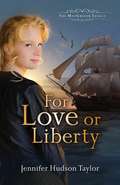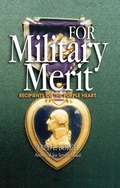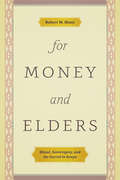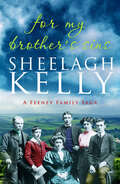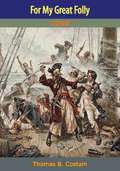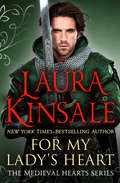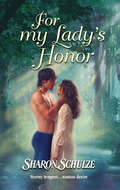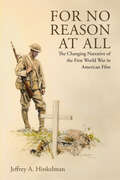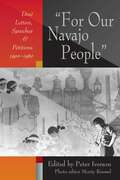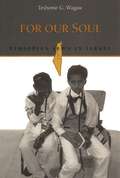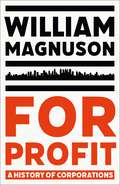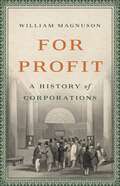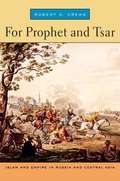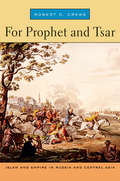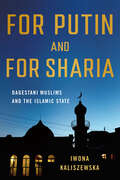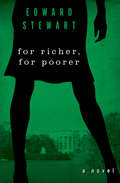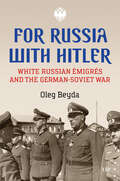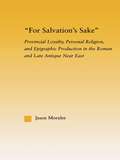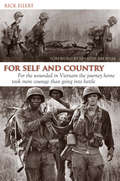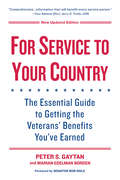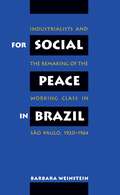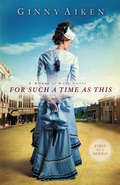- Table View
- List View
For Love or Liberty
by Jennifer Hudson TaylorGrieving over her sister's death, Charlotte Morgan leaves the Carolina coast for the shores of Lake Erie, Ohio, to help care for her niece and nephew. Conrad Deaton is also there to assist his brother after this devastating loss. Soon, Conrad and Charlotte are locked in a battle of wills as the War of 1812 rages around them. While Conrad criticizes Charlotte for her interest in politics, lectures, and lack of domestic skills, she faults him for his insensitivity, rigid schedules, and harsh discipline. The two just can't seem to get along. But could all their bickering be a sign of something more--an attraction between the two? Afraid of loving a man duty-bound to war, she ignores the growing affection between them. Battle breaks out on Lake Erie. As U.S. Naval officers, Conrad and his brother attend their posts. Charlotte turns to fervent prayer and wills her faith to grow strong as she learns to wait upon the Lord. When neither returns, Charlotte fears the worst.
For Love or Loyalty
by Jennifer Hudson TaylorTo atone for her father's evil, Lauren Campbell agrees to help Malcolm MacGregor. By the time she realizes she's the bargaining price to free Malcolm's mother from indentured servitude, it's too late.Malcolm MacGregor only wants to free his family and exact revenge against Duncan Campbell. As the pride and joy of Duncan's life, his daughter Lauren is the perfect answer, but during the voyage to America, her faith continues to witness to Malcolm. He becomes enraptured with her, and upon their arrival, discovers he's sold her into a fate worse than death. Now Malcolm has the dilemma: free his family or rescue Lauren? Time is short and with little means, he needs a miracle.
For Love or Loyalty
by Jennifer Hudson TaylorTo atone for her father's evil, Lauren Campbell agrees to help Malcolm MacGregor. By the time she realizes she's the bargaining price to free Malcolm's mother from indentured servitude, it's too late. Malcolm MacGregor only wants to free his family and exact revenge against Duncan Campbell. As the pride and joy of Duncan's life, his daughter Lauren is the perfect answer, but during the voyage to America, her faith continues to witness to Malcolm. He becomes enraptured with her, and upon their arrival, discovers he's sold her into a fate worse than death. Now Malcolm has the dilemma: free his family or rescue Lauren? Time is short and with little means, he needs a miracle.
For Military Merit
by Fred BorchMore than one million men and women have received the Purple Heart since its creation as an award "for military merit" in 1932. This book provides a brief history of the Purple Heart, with a focus on how the decoration's award criteria have evolved. The book then takes a representative look at Purple Heart recipients from all the services by conflict, concluding with Afghanistan and Iraq.Among the recipients highlighted are: Civil War veteran Pvt. Oran Randlett, who, in 1937, received two Purple Hearts for wounds received at Chancellorsville in 1863 and Cold Harbor in 1864; Brig. Gen. Robert Frederick, who received a record eight Purple Hearts for wounds in World War II; and crew members of USS Panay, who were awarded Purple Hearts fifty-five years after the 1937 Japanese attack on their gunboat.
For Money and Elders: Ritual, Sovereignty, and the Sacred in Kenya
by Robert W. BluntMany observers of Kenya’s complicated history see causes for concern, from the use of public office for private gain to a constitutional structure historically lopsided towards the executive branch. Yet efforts from critics and academics to diagnose the country’s problems do not often consider what these fiscal and political issues mean to ordinary Kenyans. How do Kenyans express their own political understanding, make sense of governance, and articulate what they expect from their leaders? In For Money and Elders, Robert W. Blunt addresses these questions by turning to the political, economic, and religious signs in circulation in Kenya today. He examines how Kenyans attempt to make sense of political instability caused by the uncertainty of authority behind everything from currency to title deeds. When the symbolic order of a society is up for grabs, he shows, violence may seem like an expedient way to enforce the authority of signs. Drawing on fertile concepts of sovereignty, elderhood, counterfeiting, acephaly, and more, Blunt explores phenomena as diverse as the destabilization of ritual “oaths,” public anxieties about Satanism with the advent of democratic reform, and mistrust of official signs. The result is a fascinating glimpse into Kenya’s past and present and a penetrating reflection on meanings of violence in African politics.
For My Brother's Sins (The Feeney Family Sagas)
by Sheelagh KellyFrom an author praised for her &“genuinely perceptive portrayals of human relationships,&” a historical saga about an immigrant Irish family in Yorkshire (Irish Independent).Summer, 1867: a sudden change in fortune promises to save the Feeneys from their life of poverty. But what will save the Feeney family from itself? Patrick and Thomasin Feeney and their children, Erin, Richard and Sonny, each have different dreams—and as these dreams grow the old bonds between them begin to break. Husband and wife, father and son, brother and brother are all in conflict. But it is Richard, as dishonest and selfish as he is handsome and charming, whose final betrayal threatens everything . . . The second in the bestselling Feeney Family sagas, For My Brother&’s Sins is an unputdownable and emotionally moving saga for fans of Annie Murray, Maggie Ford and Anna Jacobs. Praise for the writing of Sheelagh Kelly: &“The tough, sparky characters of Catherine Cookson, and the same sharp sense of destiny, place and time.&” Reay Tannahill, author of Fatal Majesty and Sex in History &“Sheelagh Kelly surely can write.&” —Sunderland Echo
For My Great Folly: A Novel
by Thomas B. CostainA LUSTY, BRAWLING NOVEL ABOUT SEVENTEENTH-CENTURY PIRATESFore My Great Folly, which was first published in 1942, is the powerful story of a young scholar who leaves his books to join a pirate ship—and achieves manhood fighting side by side with the legendary buccaneer John Ward.Fore My Great Folly re-creates the fascinating era of English pirates who waged a private war with Spain in the seventeenth century.For My Great Folly was the beginning of Thomas B. Costain’s great career in historical fiction, and it remains of one of the truly great sea stories in modern literature.
For My Lady's Heart: For My Lady's Heart And Shadowheart (The Medieval Hearts Series #1)
by Laura KinsaleA princess sparks devotion in a chivalrous knight in this medieval romance by a New York Times–bestselling author who &“creates magic&” (Lisa Kleypas). With Princess Melanthe di Monteverde widowed, a political marriage would tip the balance of power to any kingdom that possessed her. Determined to return to England alive and unwed, she hides behind a mask of witchery. Protecting her is Ruck d&’Angleterre, a chivalrous knight who never wavers—and the only man Melanthe wishes could lift the veil of her disguise. He once desired her, but now his gaze reveals distrust. As they flee her enemies, Melanthe&’s impossible love for the Green Knight grows. Ruck has remained chaste for thirteen miserable years, since his wife entered a nunnery, continuing to honor their marital vows. In that dark hour, when the church stripped him of his spouse and his possessions, the princess secretly came to his aid with two emeralds. Her safety is his duty, yet his heart is not pure. Each time he gazes upon Melanthe&’s sable hair and twilight eyes, he wants more Showcasing Laura Kinsale&’s gift for bringing unforgettable characters to life on the page, For My Lady&’s Heart is yet another winner from the author of Flowers from the Storm, chosen as one of the &“Greatest Love Stories of All Time&” in a poll of Washington Post and Glamour magazine readers.
For My Lady's Honor
by Sharon Schulze'TWAS THE FATE OF WOMEN TO BE AT THE MERCY OF MEN. But Lady Alys Delamare, an unwilling sacrifice to her father's ambitions, yearned for a life of her own choosing. And such a life, her rebellious heart proclaimed, included the handsome knight Sir Padrig ap Huw.... Thrown together by a stormy tempest, they were drawn to each other--wild and wanton and burning with desire. But Lady Alys was destined for much grander things than a landless knight such as he could ever provide. All he could offer was his protection, his honor--and his passion!
For No Reason at All: The Changing Narrative of the First World War in American Film
by Jeffrey A. HinkelmanThe years following the signing of the Armistice saw a transformation of traditional attitudes regarding military conflict as America attempted to digest the enormity and futility of the First World War. During these years popular film culture in the United States created new ways of addressing the impact of the war on both individuals and society. Filmmakers with direct experience of combat created works that promoted their own ideas about the depiction of wartime service—ideas that frequently conflicted with established, heroic tropes for the portrayal of warfare on film.Those filmmakers spent years modifying existing standards and working through a variety of storytelling options before achieving a consensus regarding the fitting method for rendering war on screen. That consensus incorporated facets of the experience of Great War veterans, and these countered and undermined previously accepted narrative strategies. This process reached its peak during the Pre-Code Era of the early 1930s when the initially prevailing narrative would be briefly supplanted by an entirely new approach that questioned the very premises of wartime service. Even more significantly, the rhetoric of these films argued strongly for an antiwar stance that questioned every aspect of the wartime experience. For No Reason at All: The Changing Narrative of the First World War in American Film discusses a variety of Great War–themed films made from 1915 to the present, tracing the changing approaches to the conflict over time. Individual chapters focus on movie antecedents, animated films and comedies, the influence of literary precursors, the African American film industry, women-centered films, and the effect of the Second World War on depictions of the First. Films discussed include Hearts of the World, The Cradle of Courage, Birthright, The Big Parade, She Goes to War, Doughboys, Young Eagles, The Last Flight, Broken Lullaby, Lafayette Escadrille, and Wonder Woman, among many others.
For Our Navajo People: Dine Letters, Speeches, and Petitions, 1900-1960
by Peter Iverson Monty RoesselOne hundred documents written by Diné men, women, and children speaking for themselves and on behalf of their communities are collected in this book. Discovered during Iverson's research for Diné: A History of the Navajos, these letters, speeches, and petitions, almost all previously unpublished, provide a uniquely moving portrait of the Diné during an era in which they were fighting to defend their lands and to build the Navajo Nation.Six crucial, overlapping subjects are addressed here: land, community, education, rights, government, and identity. Brief introductions to each chapter and each document provide the necessary context, and historic photographs selected by Monty Roessel (Navajo), an outstanding photographer, supplement the words of the people. Most of the vast literature about American Indians emphasizes the actions and words of non-Indians. Indians become the victims, the people to whom things happen. This volume furnishes a different view of the native past. It shows Navajos making their own history. It demonstrates how the Diné worked to keep their lands, develop their economy, build their communities, educate their young people, affirm their rights, govern themselves, and maintain their heritage while forging a brighter future. Included are the words of such prominent leaders as Chee Dodge, Jacob Morgan, Tom Dodge, Annie Wauneka, Sam Ahkeah, and Paul Jones, and less widely known but significant spokespersons like Howard Gorman, Scott Preston, Roger Davis, and Lilly Neill. It also presents the words of students at boarding schools, soldiers fighting in World War II, and members of the Native American Church speaking out for religious freedom. This book celebrates the resilience of the Diné and salutes their resolve. It honors the men, women, and children who built the Navajo Nation.Monty Roessel (Navajo), Executive Director of the Rough Rock Community School, has written and provided photographs for award-winning books for young people.
For Our Soul: Ethiopian Jews in Israel (Raphael Patai Series in Jewish Folklore and Anthropology)
by Teshome WagawBetween 1977 and 1992, practically all Ethiopian Jews migrated to Israel. This mass move followed the 1974 revolution in Ethiopia and its ensuing economic and political upheavals, compounded by the brutality of the military regime and the willingness-after years of refusal-of the Israeli government to receive them as bona fide Jews entitled to immigrate to that country. As the sole Jewish community from sub-Sahara Africa in Israel, the Ethiopian Jews have met with unique difficulties. Based on fieldwork conducted over several years, For Our Soul describes the ongoing process of adjustment and absorption that the Ethiopian Jewish immigrants, also known as Falasha or Beta Israel, experienced in Israel.
For Profit: A History of Corporations
by William MagnusonWe have long been suspicious of corporations recklessly pursuing profit and amassing wealth and power. But the story of the corporation didn't have to be like this. For most of history, they were not amoral entities, but public institutions designed to promote the societies that granted them charter. Magnuson reveals how the corporation has evolved since its beginnings in the ancient world. What happens in this next chapter of the global economy depends on whether we can return to their public-minded spirit, or whether we have sunk irrevocably into the swamp of high profit at all costs. Epic and compelling in scope, For Profit illuminates the roles corporations played, for good and evil, in the making of the modern world.
For Profit: A History of Corporations
by William MagnusonA history of how corporate innovation has shaped society, from ancient Rome to Silicon Valley From legacy manufacturers to emerging tech giants, corporations wield significant power over our lives, our economy, and our politics. Some celebrate them as engines of progress and prosperity. Others argue that they recklessly pursue profit at the expense of us all. In For Profit, law professor William Magnuson reveals that both visions contain an element of truth. The story of the corporation is a human story, about a diverse group of merchants, bankers, and investors that have over time come to shape the landscape of our modern economy. Its central characters include both the brave, powerful, and ingenious and the conniving, fraudulent, and vicious. At times, these characters have been one and the same. Yet as Magnuson shows, while corporations haven&’t always behaved admirably, their purpose is a noble one. From their beginnings in the Roman Republic, corporations have been designed to promote the common good. By recapturing this spirit of civic virtue, For Profit argues, corporations can help craft a society in which all of us—not just shareholders—benefit from the profits of enterprise.
For Prophet And Tsar: Islam And Empire In Russia And Central Asia
by Robert D. CrewsDrawing on police and court records, and Muslim petitions, denunciations and clerical writings - not accessible prior to 1991 - this text unearths the fascinating relationship between an empire and its subjects.
For Prophet and Tsar: Islam and Empire in Russia and Central Asia
by Robert D. CrewsRussia occupies a unique position in the Muslim world. Unlike any other non-Islamic state, it has ruled Muslim populations for over five hundred years. Though Russia today is plagued by its unrelenting war in Chechnya, Russia's approach toward Islam once yielded stability. In stark contrast to the popular "clash of civilizations" theory that sees Islam inevitably in conflict with the West, Robert D. Crews reveals the remarkable ways in which Russia constructed an empire with broad Muslim support. In the eighteenth century, Catherine the Great inaugurated a policy of religious toleration that made Islam an essential pillar of Orthodox Russia. For ensuing generations, tsars and their police forces supported official Muslim authorities willing to submit to imperial directions in exchange for defense against brands of Islam they deemed heretical and destabilizing. As a result, Russian officials assumed the powerful but often awkward role of arbitrator in disputes between Muslims. And just as the state became a presence in the local mosque, Muslims became inextricably integrated into the empire and shaped tsarist will in Muslim communities stretching from the Volga River to Central Asia. For Prophet and Tsar draws on police and court records, and Muslim petitions, denunciations, and clerical writings--not accessible prior to 1991--to unearth the fascinating relationship between an empire and its subjects. As America and Western Europe debate how best to secure the allegiances of their Muslim populations, Crews offers a unique and critical historical vantage point.
For Putin and for Sharia: Dagestani Muslims and the Islamic State (NIU Series in Slavic, East European, and Eurasian Studies)
by Iwona KaliszewskaFor Putin and for Sharia examines what it means to support sharia in twenty-first-century Dagestan, where calls for an Islamic state coexist with nostalgia for the days of Stalin's rule and Mecca calendars hang alongside portraits of Putin. Confronting existing narratives about sharia, terrorism, and anti-terrorism through ethnographic fieldwork, Iwona Kaliszewska looks at the beliefs and practices of Dagestani Muslims, revealing that the pursuit of sharia can assume a range of forms from sweeping visions of an Islamic state imposed through violence, to minor acts of everyday resistance against injustice, to attempts to restore the security and stability once afforded by the Soviet state. In For Putin and for Sharia, Kaliszewska challenges the official dichotomy of Muslims as supporting either the political underground or state authorities and deconstructs the Salafi/Sufi division between the so-called reformists and traditional Islam.
For Richer, for Poorer: A Novel
by Edward StewartSet against four tumultuous decades of American history, For Richer, for Poorer is a spellbinding saga of betrayal and love . . . and one woman&’s quest for revengeThe day a brutal massacre turns Bartonville into a battlefield, Kitty is living with her father in a shack owned by the town&’s most powerful family. When the bloodshed is over, the boy Kitty loves lies fatally wounded. But their child will live on. And Tyrone Duncannon&’s death will be avenged.For Richer, for Poorer is the story of Kitty Kellogg Stokes, born into a hardscrabble life in small-town Pennsylvania, who rose to become the most influential woman in the political circles of New York and Washington, DC. When Kitty marries John Stokes Jr., she bears him two sons. So begins a deception that will continue for decades and test the limits of a woman&’s desire for revenge—and a mother&’s love.
For Russia with Hitler: White Russian Émigrés and the German-Soviet War
by Oleg BeydaThe Bolshevik takeover of Russia created an alternative Russia in exile that never laid down its arms. For two decades, expelled White Russians sought ways to retaliate against the Soviet Union and return home. Their irreconcilability was galvanized by a superstructure, the dominant military organization, the Russian All-Military Union (ROVS). Eventually, militant anti-Bolshevism led the exiled Russians into alliance with Nazi Germany, despite the latter’s anti-Slavic stance. For Russia with Hitler tells the story of how thousands of White Russian émigrés joined the German invasion of the Soviet Union as soldiers, translators, and civilian workers. Oleg Beyda investigates and contextualizes émigré collaboration with National Socialist Germany, explaining how it was possible for Russians to fight against the Russians. The book reveals that the exiles, although united ideologically by Russian nationalism in a general sense, did not establish one single, clear-cut political solution for a future “liberated Russia.” Drawing on wide archival material, For Russia with Hitler details the background and ideological framework of the émigrés, how they rationalized their support for Nazism, and what they did on the Eastern Front, including their reactions to life in occupation, war crimes, and the Holocaust.
For Salvation's Sake: Provincial Loyalty, Personal Religion, and Epigraphic Production in the Roman and Late Antique Near East (Studies in Classics)
by Jason MoraleeThis book breaks new ground in the study of cultural unity in the Near East from pre-Roman to early Islamic times (first century BC - eighth century AD). Based on a thorough study of nearly 400 Greek and Latin inscriptions from Syria, Lebanon, Jordan and Israel, this book shows how the formula 'for salvation's sake' (hyper soterias/pro salute) was fundamental to the political, social and religious lives of hundreds of civic and military elites in the Near East. Initially an expression of ancient indigenous religion, this formula expressed loyalty to the central authority at Rome, while profiling social status and piety. With the arrival of Christianity and Islam, the formula lost its political importance, but persisted in its social and religious applications among Christian and Jewish communities in Late Antiquity. Presenting a new body of evidence, Jason Moralee provides a fresh look at how Romans used the inscriptions to secure the loyalty of their subjects for centuries. This analysis of material culture through several periods redefines notions of political loyalty in the Middle East from antiquity through the Middle Ages, raising new questions about life in the Roman provinces.
For Self and Country
by Rick EilertJust a few months after enlisting in the Marine Corps and being sent to Vietnam, nineteen-year-old Rick Eilert was seriously injured in combat and transferred to Great Lakes Naval Hospital in Illinois for a long and painful recovery. Eilert tells not only his own story but the stories of the men around him whose friendship, humor, and courage sustained him. Eilert describes the hospital as a place of emotional and physical rehabilitation and pays tribute to those who cared for them. When the book was first published in 1983, he was awarded the George Washington Medal by the Freedoms Foundation and invited to the Oval Office by President Ronald Reagan.
For Service to Your Country: The Essential Guide to Getting the Veterans' Benefits You've Earned
by Gaytan Peter S. Edelman Borden MarianThe Must-Have Guide To Veterans' BenefitsIf you're a veteran--or a veteran's family member--you know how hard it is to navigate the VA benefits maze. This definitive guide steers you through the process so that you and your family can get the benefits you're entitled to. Filled with vital information on the latest programs, here is clear, step-by-step, form-by-form advice on cutting through the red tape. And if benefits are denied, it will show you how to appeal an unfair decision. In this newly updated edition, you'll find essentials on: Health Care, Disability, and Rehabilitation--including changes in eligibility and access; Emergency Room care at non-VA facilities; Project Hero for veterans in rural areas; the VA's new suicide prevention outreach initiative; the Benefits Delivery at Discharge program (BDD) for transitioning service members. Education--Complete information on the Post 9/11 GI Bill, which doubles educational benefits to eligible veterans. VA Loans for Home Ownership--For veterans facing foreclosure or looking to purchase after foreclosure. Job Preference Eligibility and Entrepreneurship Opportunities--New non-VA services that are available to veterans. Plus new benefits for dependents and an expanded resource list. When you're dealing with a system that says no more than yes, it helps to know every angle--before you fill out those forms in triplicate. Take advantage of these opportunities if you are eligible. You've earned them and deserve them. –Bob Dole
For Social Peace in Brazil
by Barbara WeinsteinThis book is the first major study of industrialists and social policy in Latin America. Barbara Weinstein examines the vast array of programs sponsored by a new generation of Brazilian industrialists who sought to impose on the nation their vision of a rational, hierarchical, and efficient society. She explores in detail two national agencies founded in the 1940s (SENAI and SESI) that placed vocational training and social welfare programs directly in the hands of industrialist associations. Assessing the industrialists' motives, Weinstein also discusses how both men and women in Brazil's working class received the agencies' activities. Inspired by the concepts of scientific management, rational organization, and applied psychology, Sao Paulo's industrialists initiated wide-ranging programs to raise the standard of living, increase productivity, and at the same time secure lasting social peace. According to Weinstein, workers initially embraced many of their efforts but were nonetheless suspicious of employers' motives and questioned their commitment to progressivism. By the 1950s, industrial leaders' notion of the working class as morally defective and their insistence on stemming civil unrest at all costs increasingly diverged from populist politics and led to the industrialists' active support of the 1964 military coup.
For Such a Time as This: A Women of Hope Novel (Women of Hope #1)
by Ginny AikenDrought has forced farmers around the small town of Bountiful in the Hope region of Oregon to mortgage their property. Then word comes of plans for a spur line to run through the area and join the railroad in nearby Milton. Folks with money see an opportunity to fill their coffers by buying farmland cheap then selling to the railroad for a profit. The Bank of Bountiful, owned by Eli Whitman, appears to be doing that, as well.Widowed two years earlier, Eli, with a son and daughter to raise, sought a hard-working, educated Christian woman to care for them and his home. Olivia Moore filled the bill, and as soon as Eli recognized her as an excellent investment, he offered her first employment then a marriage of convenience.While Olivia is an excellent choice, her large family gives Eli pause. He knows about the problems posed by in-laws, so he will do whatever it takes to avoid a repeat of his earlier experiences.When Papa tells Olivia the Moore family must move according to Eli's terms for the new railroad line, she fears for their safety, since they'll be homeless during winter. Where will they go? How will they survive?It is up to Olivia to convince her husband to renege on his demands, though she swore before their marriage she would stay out of his business.
For The Pleasure of His Company: An Affair of The Misty City
by Charles Warren StoddardFor the Pleasure of His Company: An Affair of the Misty City (1903) is a novel by Charles Warren Stoddard. Published toward the end of Stoddard’s career as a poet and travel writer whose friends included Mark Twain and Ambrose Bierce, For the Pleasure of His Company: An Affair of the Misty City is a pioneering novel that explores the ambitions of a young artist while illuminating the struggles of gay men in a society that failed to accept them as equals. At 25 years of age, Paul Clitheroe is “master of himself, but slave to fortune.” A struggling writer, he lives a life of ennui and excess, looking for love and success without being sure of the shape of either. In the Misty City, he has begun making a name for himself among local editors and readers, finally finding publication for his work. Despite this modest success, he remains unsatisfied, unsure of himself, and increasingly restless. Are his mixed feelings merely a symptom of his poetic outlook, or something else altogether? When the debonair Foxlair invites Paul to join him on a voyage to the South Seas, a land of promise where gay men can live without fear of reprisal, he wonders if there is a place for him after all. With a beautifully designed cover and professionally typeset manuscript, this book is a classic work of American literature reimagined for modern readers.
